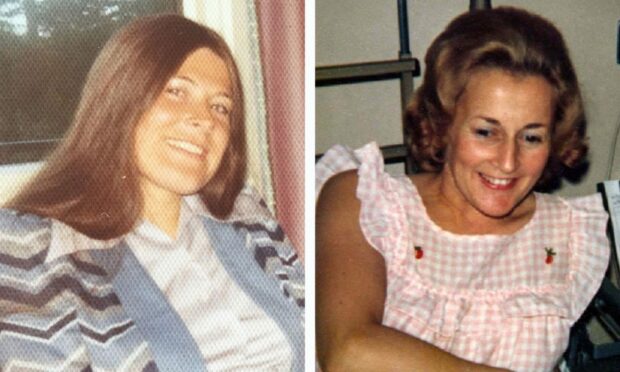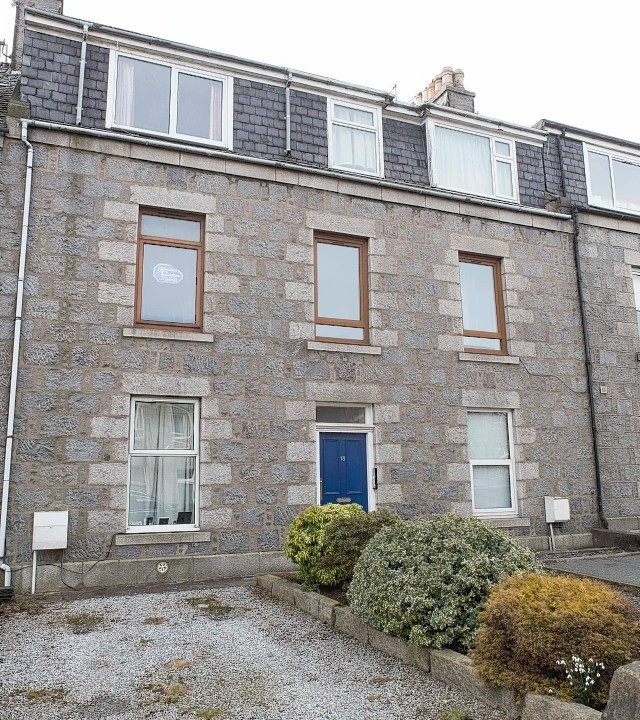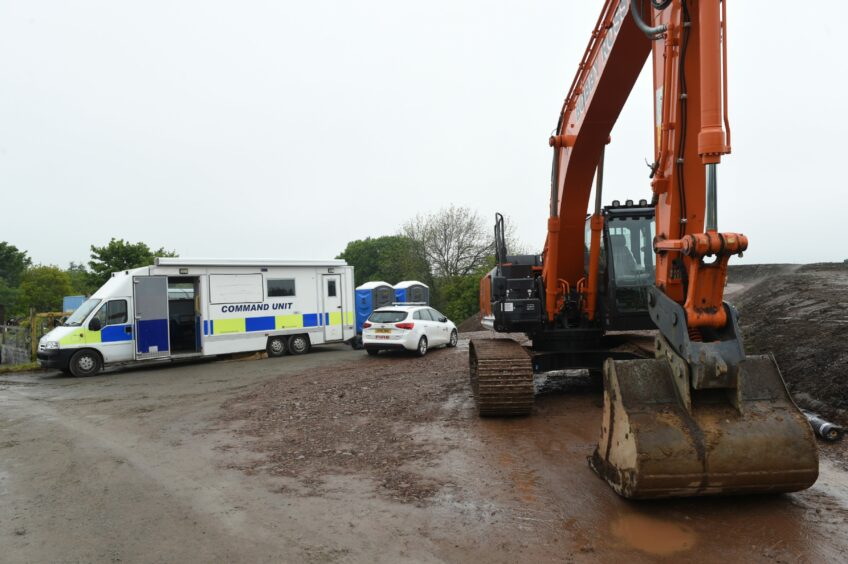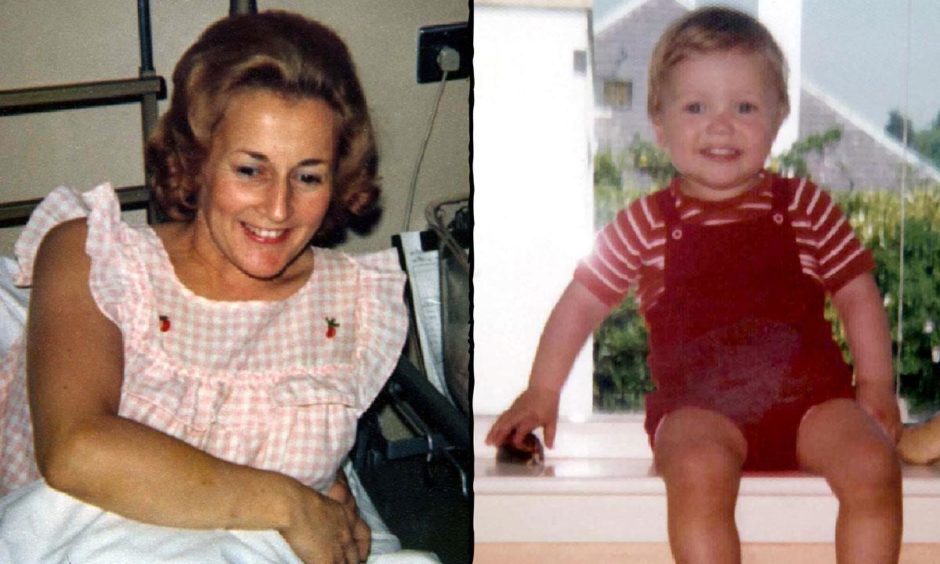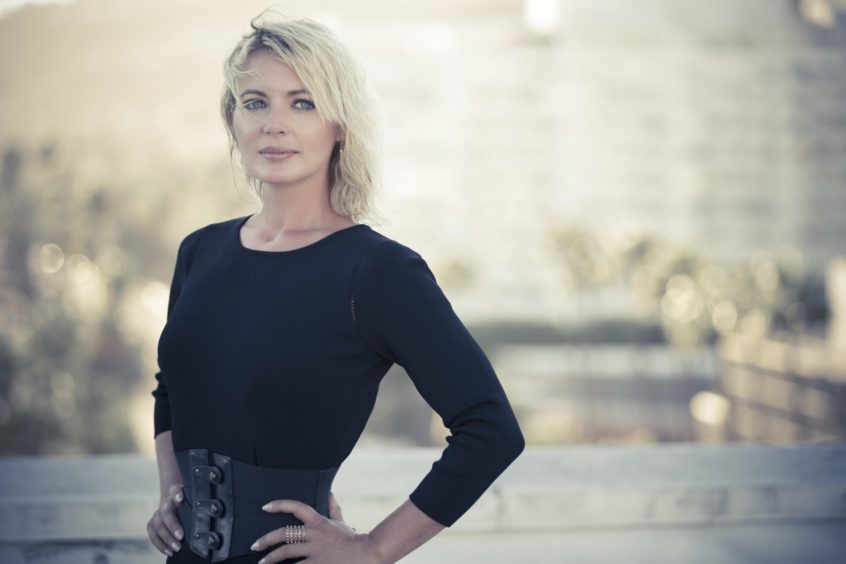The murder trials of two of the region’s most notorious unsolved cases are to be filmed by TV cameras, the Press and Journal can reveal today.
Proceedings in the Brenda Page and Renee MacRae murder trials will be recorded for the BBC’s Murder Case television series, the broadcaster has confirmed.
And audio of the Brenda Page trial will also be made into a podcast – a first for Scotland.
The documentaries will only be broadcast after the conclusion of the cases.
Christopher Harrisson is due to go on trial at the High Court in Aberdeen next week accused of repeatedly striking 32-year-old Brenda on the head and body with a blunt implement or implements.
It’s alleged he forced entry to his former wife’s home on Aberdeen’s Allan Street on July 14 in 1978.
Brenda, a genetic scientist, was working at Aberdeen University at the time of her death.
Harrisson, 81, will stand trial accused of her murder on Monday August 22.
Small, remotely-controlled cameras will record evidence during the trial, which is estimated to last for around 15 days.
The Crown Office and Procurator Fiscal Service (COPFS) has already written to witnesses to explain that their court appearances will be audio and video-recorded by documentary makers.
Witnesses have been reassured that their faces won’t be identifiable in the final broadcast unless they give their written consent.
Recording in court is controlled by very strict rules enforced by the Judicial Office for Scotland’s broadcast protocol.
It states: “Subject to an overriding public interest which entitles the judge to authorise broadcasting of a participant without consent, no participant in the trial can appear in an identifiable way in the final broadcast unless he, or she, has given his, or her, express written consent.
“A participant, who does not consent to being included in the broadcast, may still be recorded during the trial…but that, in the absence of consent, that participant must not be identifiable in any subsequent broadcast.
“No witness will be put under any pressure to appear in the broadcast,” it adds.
A spokesperson for the Judicial Office for Scotland said: “The Broadcast Protocol established in 2018 allows applications for the filming of criminal trials for documentary purposes, except in cases involving children, sexual offences and vulnerable witnesses.
“All applications must be considered and approved by the Lord President.
“The production company must also seek the permission of anyone they wish to appear in the documentary.”
Not the first murder trial broadcast
It’s not the first time a Scottish murder trial has been broadcast on TV.
In 2013 Channel 4 screened The Murder Trial, which covered the case of Elgin businessman Nat Fraser, who was accused – and found guilty – of murdering his wife Arlene.
And in 2020, Murder Trial: The Disappearance of Margaret Fleming was aired on BBC Two.
Margaret was a vulnerable adult who was living in Inverkip, Inverclyde, and being looked after by two carers Edward Cairney and Avril Jones who were both convicted of her murder in 2019.
The production company behind that programme, Firecrest Films, is also producing the series uncovering the Brenda Page murder investigation and resulting trial.
Programme makers have been given “unparalleled access to Police Scotland’s Major Investigations Team,” the firm’s website said.
Detectives have been working with Firecrest Films on both the Brenda Page and Renee MacRae cases.
It has included filming on location during the draining and excavation of Leannach Quarry, by Culloden Moor on the outskirts of Inverness.
The site was probed for potential evidence as part of the inquiry into missing Inverness mum Renee MacRae, 36, and her three-year-old son Andrew.
On September 12, at the High Court in Inverness, William MacDowell, 80, will be tried by a jury for their alleged murders.
Both vanished from Inverness 45 years ago and became the UK’s longest-running missing persons case.
MacDowell is accused of assaulting Renee and her son Andrew at a lay-by on the A9 trunk road near Dalmagarry, or elsewhere, on November 12 1976.
The trial, estimated to last two weeks, will hear evidence from beyond the grave in the form of police statements given by witnesses who have since died.
In another first for Scotland, and potentially the UK, the Brenda Page trial will also be podcasted by Isla Traquair, a former Press and Journal reporter and newsreader for STV and Channel 5.
Isla, who previously worked on the STV series Unsolved and wrote and produced an episode dedicated to the Brenda Page case in 2003, said it’s a “huge honour” to get the opportunity to produce an audio documentary on the trial.
She said: “The Judiciary said that they thought this is the first time ever in the history of the UK that a podcast has been granted permission to do this.
“I don’t sensationalise murder. I know there are many fans of true crime that quite like the sensational stuff but that’s not my goal.
“It’s about the human tragedy and the ripple effect.
“For the public to hear the actual voice, the tone, the way something is said is the most truthful way of reporting and the most accurate way for people to witness open justice and really hear it for themselves.”
The podcast will become available after the conclusion of the trial.
It follows Isla Traquair’s first series Storyteller: murder most foul which was released in 2019 to mark the 20th anniversary of the horrific murder of Melanie Sturton in 1999.
The 22-year-old was brutally knifed to death in her Great Western Road flat in Aberdeen and robbed of £30, some gift vouchers and trinkets.
The series went straight to number one on iTunes true crime.
For all the latest court cases in Aberdeen as well as crime and breaking incidents, join our Facebook group.
